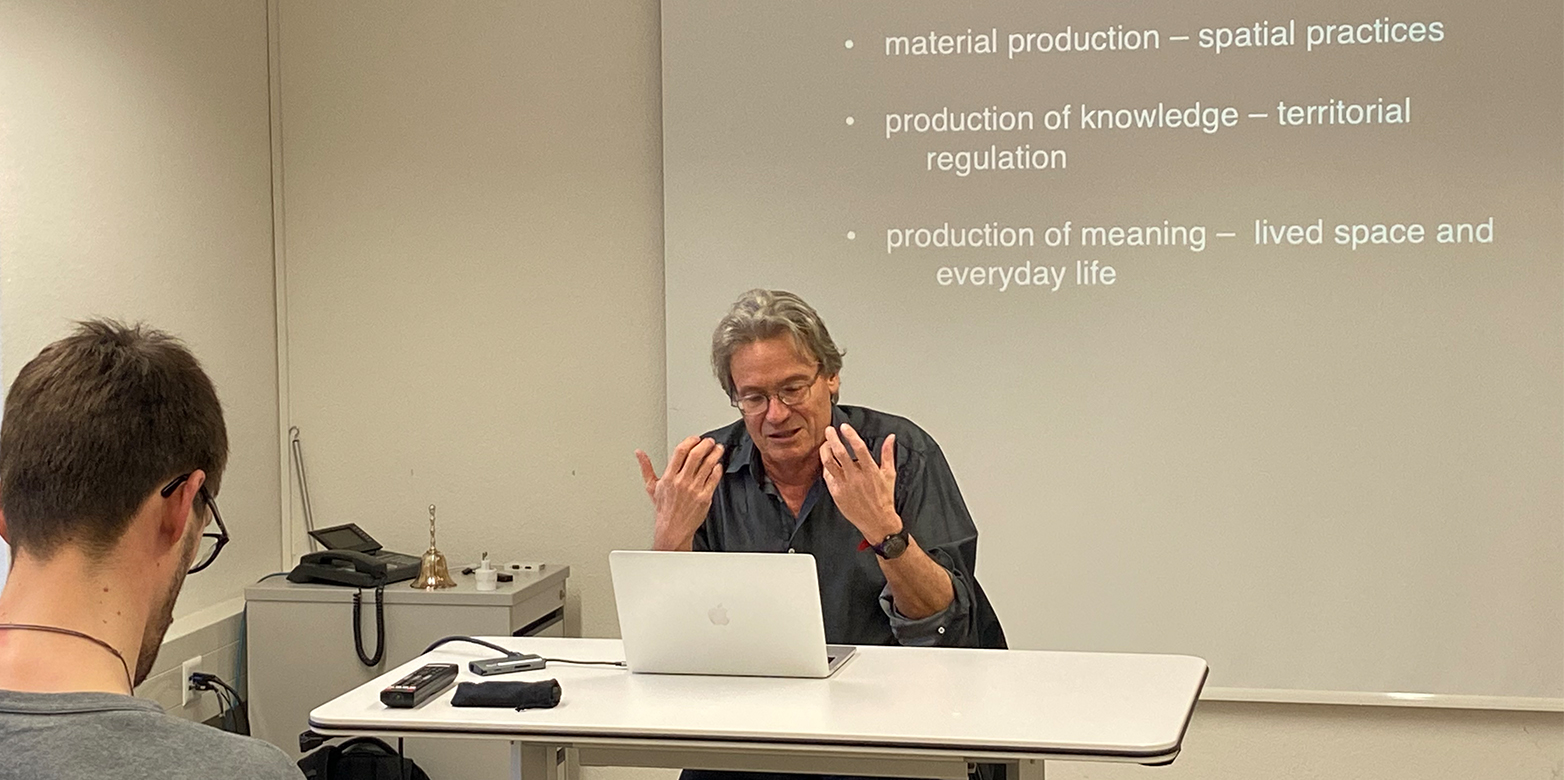Planetary Urbanisation: Decentering Perspectives on the Urban
Rapid and, predominantly uncontrolled, development of urban areas leads to increasing (spatial) tensions across the planet. The extent and global effects of this expansion fall under the umbrella of planetary urbanization, a phenomenon that is extensively studied by today's speaker Christian Schmid, Professor of Sociology at the Department of Architecture, ETH Zurich and researcher at ETH Studio Basel.
by Johann S. Schuur

"Le Planétaire", a term coined in 1960, finds its revival through the work of Schmid and his col-leagues, where it now accurately describes the current state of affairs. The meaning can be dissected in two by describing both the Planetary Reach, and Planetary Perspective of urbanization, inviting us to view urbanization as a process that nowadays affects each part of the planet, and to step away from a predominantly center-driven focus.
These observations tap into and expand the framework of urbanization that is commonly seen as a pure architectural concept (extension of urban areas), an economical/geographical view (extension of consciousness and experience), or in the theory of Lefebvre:
“Urbanization connects space with the built environment and infrastructure, it produces meaning, knowledge and materials, involves planning and regulation, and requires a multitude of stake-holders to interact everyday life within a three-dimensional lived space”.
Schmid and colleagues bring forward a distinction by defining the urban-trinity of concentrated, extended and differential urbanization. In the case of concentrated urbanization, they focus on agglomeration as an economic force, based on the organization of space, regions and mega-regions and the aspect of triumphalism. Extended urbanization, includes for example the global shipping lanes, shifting the focus from cities to the worlds waters, shedding light on a different understanding of urbanization. Here the view is beyond the suburbs, limits of the urban and questions the outside of the urban. Differential urbanization, captures the notion of centrality, difference and mediation and focusses on the value of use versus that of exchange in a more social context.
The new vocabulary finds its origin in a number of projects that Schmid is involved in. Using cartography as their main tool, they map urbanization processes in cities such as Tokyo, Hong Kong, Shenzhen, Dongguan, Kolkata, Istanbul, Lagos, Paris, Mexico city and Los Angeles. Based on the aforementioned urban-trinity, the evolvement of planetary urbanization is effectively brought to light.
The described projects outline situations that are beyond our known concepts of architecture and urbanization, hence pointing towards the need of more narrowly defined terms in the urban jargon. The situations display conflicts arising over e.g., livelihood, sustainable development, depletion of soils and increasing pressure on infrastructure.
Schmid highlights three important aspects of decentering perspectives: 1) the movement of people and the notion of their connection to cities is outdated, 2) we face strong processes of periphelization and lastly 3) territorial regulation is very contradictory.
The overarching results of numerous studies that are carried out in collaboration with ETH Zurich, ETH Studio Basel, the Transdisciplinarity Lab, and the Future Cities Laboratory Singapore are expected to be bundled and presented in the coming years.
We would like to warmly thank Prof. Dr. Schmid for focusing our view on the multitude of (alarming) processes of current urbanization. Because these tools can ultimately aid in decision-making processes concerned with the constructive development of contemporary urbanization, we are looking forward to welcoming him back at the Institute of Science, Technology and Policy!
To get a broadened sense of the ISTP and our topics of interest and past seminars visit our Colloquia page.